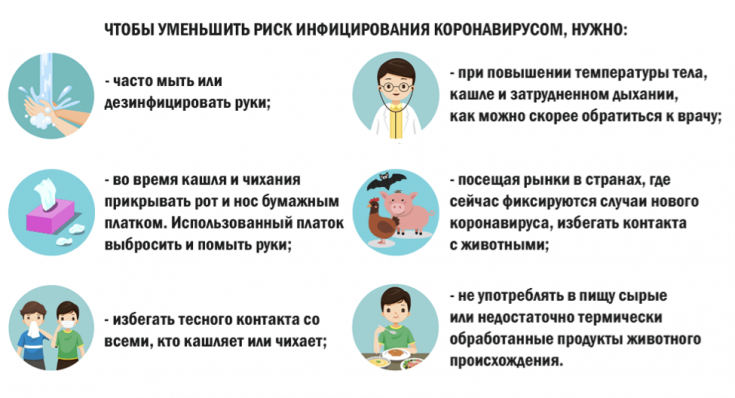The word "coronavirus" is on everyone's lips these days. Someone is really afraid of him and stocks up on medical masks and respirators, as well as disinfectant gels. Others are irritated by talk of a virus that kills far fewer people than the seasonal flu. Where is the truth? Should we be afraid of the epidemic and stay at home to avoid danger? And could COVID-19 get out of hand?
Find out in the article on estet-portal.com how to deal with coronavirus.
- From the common cold to Severe Acute Respiratory Syndrome
- virus mutation: reality or myth
- risks of infection and groups of people most exposed to dangerous COVID-19
- individual behavior in exposure to coronavirus
From the common cold to Severe Acute Respiratory Syndrome
The saddest fact about this virus is that a person can get sick without knowing it. In this case, good immunity is very important.
See also: Impaired skin immune function in vitamin D deficiency
At first, the coronavirus causes mild cold symptoms. The main symptoms are fever, a feeling of fever, as well as difficulty breathing - coughing or shortness of breath.
Yet, in the 19th century there were already two deadly epidemics that were carried by animals and transmitted to humans: SARS-CoV and MERS-CoV.
Since March 11, 2020, the WHO (World Health Organization) has described the global COVID-19 situation as a pandemic - the epidemic has so far affected 137 countries over a large area. This virus begins with a simple cold, and can develop into serious pathologies. The essence of these pathologies is a severe form of pneumonia.
Unfortunately, there is currently no vaccine against coronavirus. In France, as in many countries, several treatments are currently being evaluated for use against COVID-19.
Don't believe anyone who says there is a vaccine.
Subscribe to our page on Facebook!
It takes at least a year for it to exist. During this time, she must go through three stages of testing, and only then fall into the hands of doctors.
See also: How to bring down the temperature with home remedies
At the first symptoms, see a doctor immediately to rule out the COVID-19 virus. Do not self-medicate! Taking anti-inflammatory drugs can be a factor in worsening the infection.
Of course, many will have a question how then people recover. The incubation period for this virus is usually 3 to 5 days, but sometimes up to two weeks. During this time, he may or may not develop symptoms at all, or the appearance of weak signals described above. In the early stages, the disease quickly disappears if the doctor correctly selected the treatment for you.
Virus mutation: reality or myth
According to the latest scientific evidence, the virus has not mutated, but there are currently two circulating strains of the virus: L and S. It is believed that the S strain is older than the L strain, but at this stage there is no evidence of a mutation in humans or intermediate animal hosts. According to French medical forecasts, the L strain will be the most severe and frequent circulating strain - 70% of the samples tested in the study, while the S strain will be less aggressive and frequent - approximately 30% of the samples.
It is thanks to the means of detection and measures to combat the coronavirus that the circulation of the L strain, which is more severe and more easily detectable, has a decreasing trend.
Risks of infection and groups of people most exposed to dangerous COVID-19
- infection through water
Referring to reliable sources, we can say that as of March 17, water pollution due to the virus has not been reported. The same applies to swimming pools - there has not yet been confirmation of infection through the pool.
- infection through food
Given the available information on food-borne contamination, transmission of the coronavirus from humans to other animal species is unlikely, and possible transmission through meat or fish is excluded. Raw or undercooked food does not pose any danger, as long as food preparation hygiene standards are followed.
According to the WHO, people at risk of developing a serious form of infection are:
- older people 65+;
- patients with dialysis chronic renal and heart failure stage 3 or 4;
- people with a history of cardiovascular disease, hypertension, stroke, coronary heart disease;
- people with chronic respiratory disease - asthma or cystic fibrosis;
- immunosuppression;
- cancer therapy, biotherapy, immunosuppressant;
- uncontrolled HIV infection with CD4<200/min 3;
- patients who have undergone solid organ or stem cell transplantation;
- people with metastatic cancer;
- pregnant women from the 3rd trimester.
We have named the most common groups, but this does not mean that all the others are not at risk. It is there, just very minimal.
By adhering to some rules, you can protect yourself from infection:
Read also: Attention to the lymph nodes. Symptoms of inguinal lymphogranulomatosis

- wash your hands regularly with soap and warm water for about 30 seconds;
- sneeze and cough preferably into the elbow or tissue;
- do not touch your face without the need, especially mucous membranes: do not rub your eyes, nose and do not put your hands in your mouth;
- to say hello without shaking hands and avoid kissing;
- use the mask once (wear a new mask every day);
- constantly disinfect hands with antiseptic/sanitizers;
- avoid gatherings/companies of more than 5 people, limit contacts.
Individual behavior in the face of coronavirus
If the person is not infected, then they apply the rules described above.
If you come into contact with an infected person, you are automatically at risk. To this case, temperature measurement 2 times a day, symptom control, as well as quarantine for 14 days are added.

If you think you have the first symptoms of COVID-19, do not panic, just call your family doctor, most likely you will be offered a virus test and follow-up treatment if the coronavirus test is negative. If, nevertheless, the test confirmed the presence of the virus, then you need urgent hospitalization to quickly eliminate all symptoms, and after isolation for 2 weeks to restore the body.
Information taken from reliable French sources: w.gouvernement.fr/info-coronavirus
More useful information on our YouTube channel:







Add a comment